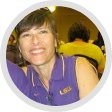Imagine the impact 75,000 students could make if each one participated in just one community focused service-learning experience every school year. How many issues could be resolved with the collective power of 75,000 young minds learning and working together with their teachers? That’s just what the National Center for Learning and Civic Engagement (NCLCE) plans to find out with the help of a $50,000 NobleCause grant to foster volunteerism.
NCLCE, a center within the Education Commission of the States, will use the grant funds to implement a new program called Districts in Action, an innovative service-learning model. “It’s a pioneering approach to community-focused service-learning that is distinguished by student-led inquiry, in which the students themselves identify personally relevant issues rather than work on teacher-generated assignments,” says Jan Brennan, project leader for NCLCE. “Community-focused service-learning engages students as agents of change in their communities. Becoming a good citizen takes practice and service-learning can achieve that.”
NCLCE supports state education leaders’ efforts to foster civic learning and engagement opportunities for all students. The organization believes that civic engagement must be taught to our nation’s young people. Through Districts in Action, students will acquire and apply cross-disciplinary, standards-based, academic content and college and career readiness skills to address student-identified real world community issues and problems. “It’s a really fresh approach to learning and serving at the same time,” adds Brennan.
The service-learning inspires the students to act as change agents, focusing on positive solutions in the service of others.
— Jan Brennan, National Center for Learning and Civic Engagement
Districts in Action incorporates a collaborative approach rather than the traditional one-way classroom instruction. Students work as a dynamic team to learn, negotiate, and address challenges while learning the process of investigating and solving issues. Projects are student-driven and community-focused about real challenges in their own neighborhoods. The kids do the research and decide what issue to tackle.
“When students identify with an issue or things that interest them, they become more invested,” adds Brennan. “The service-learning inspires the students to act as change agents, focusing on positive solutions in the service of others.”
Brennan says the teachers guide the service-learning experience. Parameters are set to ensure specific content requirements are met, but there is a lot of flexibility. “Service-learning is a pedagogical approach,” she adds. “It’s a level of engagement in learning. You can do service-learning with math, reading, global studies, etc. There’s so much that can be accomplished with this partnership aspect.”
An added benefit of Districts in Action will be its transformative impact on communities as well. In addition to the positive change driven by community-focused service-learning student projects, the program will also change perceptions of youth as assets, and enhance connections to, and investments in schools and students.
“Young people are not always viewed as assets to their communities and they might not consider themselves as assets either,” says Brennan. “Kids who always need help or who are used to receiving help may not think they are people that can offer assistance to others. They never thought of themselves as part of the solution.”
Service-learning also builds on a community’s volunteer base. “The students learn while doing,” says Brennan. “Service-learning integrates two experiences, building on classroom learning as students take volunteer action. It’s about empowering the kids. We want the kids to tackle real community issues and in that effort learn while they’re doing.”
When students identify with an issue or things that interest them, they become more invested.
— Jan Brennan, National Center for Learning and Civic Engagement
NCLCE believes that by using student engagement as a core teaching and learning strategy, students are more invested in their education and see its relevance to local issues they care about. This enhances standards-based content proficiency and also offers the added benefits of critical thinking, problem solving, communication and collaboration, community engagement, civic skills and dispositions, youth leadership and self-efficacy, and career exploration.
Implementing Districts in Action will require specialized training. According to Brennan, funds received from the NobleCause grant will be used to bring high-quality trainers into the school districts to provide initial training and quarterly classroom instruction for the teachers. Money will also be used to support the student community-focused service-learning projects.
“Inquiry-based, high-engagement teaching requires more of an investment in teacher professional development to improve instructional practice and allow teachers to implement hands-on, student-led, real world service-learning projects,” says Brennan. “It also means developing student agency, getting students out into their neighborhoods to interact with community partners, and to develop, advocate for, and implement solutions.”
The bold vision of Districts in Action is for every child in participating districts to have at least one community-focused service-learning experience each school year. Because much of current service-learning is conducted by individual teachers in individual classrooms, this is a unique opportunity to assess the potentially exponential impact on student success that can be achieved by providing students with successive iterations of community-focused service-learning experiences every year throughout their education.
According to Brennan, in order to best demonstrate the value and impact of community-focused service-learning, the first school districts to pilot Districts in Action are ones that represent different geographic areas and diverse student populations that face a variety of challenges. Three districts are kicking off the new program: Ferndale, Washington, a rural school district of 5,000 students that includes a significant group of youth from the Lummi Nation; Richardson, Texas, an urban school district outside of Dallas with 38,000 students that includes many Hispanic students and students struggling with English language proficiency; and Henry County, Georgia, a suburban school district of 40,000 students outside of Atlanta with a large African American student population. Four additional school district sites will join over the next few years.
Each district has different community issues and opportunities. For example, the Ferndale School District is along the Northwest Washington coast where the local Lummi Nation oversees critical tidelands. The student projects are likely to focus on assessing environmental impacts on water ecosystems, stream restoration, and salmon lifecycle.
The participating school districts will introduce community-focused service-learning with middle school students. “The middle school years are often a time when students begin to question the relevance of classroom instruction and testing to their own lives and real-world applications,” explains Brennan. “It is also the time when youth are developing their own voice and wanting to exercise more leadership and input into their education and lives.”
Over 1,000 students are expected to participate in Districts in Action this summer and during the 2016-2017 school year. Additional classrooms will join the program over the next several years until all 75,000 students in the participating districts have at least one service-learning experience each year throughout their education.
While the scope of projects for young students will naturally be simpler, Brennan says even young children can benefit from understanding how learning applies to real-world issues and by experiencing how they can make a positive change in their communities.
Districts in Action will launch with summer demonstration projects in June-July 2016 for middle school students at the district sites. Highly accomplished consultant trainers will lead the professional development, classroom observation, and coaching. The Teacher Leaders participating in the summer professional development and demonstration project will become peer mentors to a second group of middle school teachers who will participate in an intensive training and implement Districts in Action community-focused service-learning during the 2016-2017 academic year.
Almost 1,000 teachers will be trained over the next five years. Brennan believes they will have more success at sustainability with peer support and a “train the trainers” model for teaching all of the teachers. Each year teachers in the next grade level will be trained. As students progress to the upper grades, their teachers will already be trained to take over.
“If we can do this at a district wide level, we can create more of a culture around it for administration, teachers, and students,” says Brennan. “It can be transformative to the whole school district. Our goal is for every student to do a service-learning project every year and it’s more beneficial for students if they get to do it more than one time.”
The NCLCE expects the Districts in Action program to demonstrate the promise of high-quality, community-focused service-learning for improving student academic and civic learning outcomes. Without the funding from the NobleCause grant, Brennan says the schools would not have the resources to meet the special costs of the community-focused service-learning projects. “The NobleCause funding is an investment in student-led learning that will propel student achievements, and an investment in improving communities as students use the funds to make positive change.”
Do you want to find meaningful service opportunities in your community? Sign up today for a NobleHour account so you can volunteer for extraordinary organizations like NCLCE!
The Education Commission of the States is a trusted source for comprehensive knowledge and unbiased resources on education policy issues ranging from early learning through postsecondary education.
The NobleCause grants, organized by NobleHour, were made possible by an anonymous donor within the GiveWell Community Foundation, which serves Polk County, Florida. The NobleCause grant competition, launched in 2015, invited high schools, school districts, colleges and universities, and nonprofits to identify and address a local challenge and to recruit and enrich the social responsibility of volunteers. 100 organizations were awarded $6,500 grants, while seven exemplary organizations were recognized at the $50,000 level. NobleHour is dedicated to using NobleCause to increase volunteerism that raises awareness at the local level and develops community members who can take action.
Since 2007, NobleHour has proven to be the community engagement solution for organizations across the nation. With its robust online platform, NobleHour enhances community engagement with a variety of innovative and transformative tools for finding, tracking, and measuring volunteer, service‐learning, and community service initiatives. With offices in Lakeland, FL, and Portland, OR, the NobleHour team is dedicated to empowering good in communities across the country.
By NobleHour Special Contributor:

Dolly Duplantier
Consultant, NobleHour
Contributing Writer / Blogger
Public Relations and Communications
Greater Chicago Area
Dolly Duplantier is a freelance writer, editor, and social media specialist. She is the mother of three children, one college graduate, one in college, and one in high school. Writing about people and organizations making a difference is one of the best aspects of her job!

